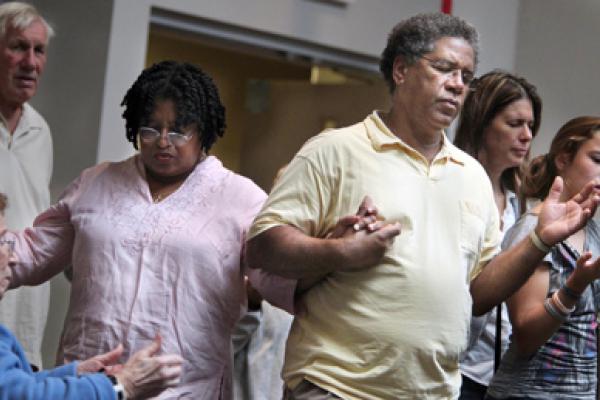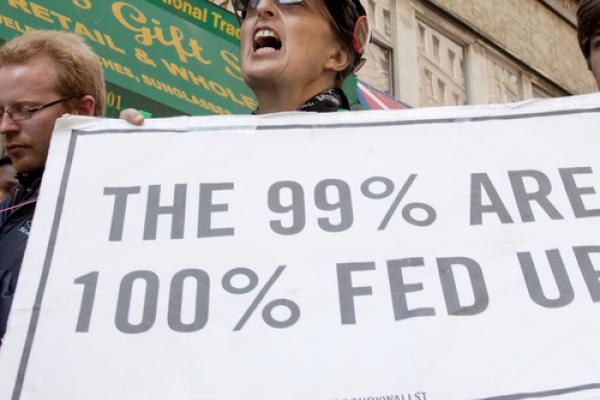God, we pray today for all the children who have been burdened with HIV/AIDS, that you will give them better access to health care and medicine. We pray that you will give strength to their caregivers and love from their communities. Lord, in your mercy, hear our prayer. Amen.
"[God] raises up the poor from the dust; [God] lifts the needy from the ash heap, to make them sit with princes and inherit a seat of honor. For the pillars of the earth are the Lord’s, and on them [God] has set the world." - 1 Samuel 2:8
“Now is the accepted time, not tomorrow, not some more convenient season. It is today that our best work can be done and not some future day or future year. It is today that we fit ourselves for the greater usefulness of tomorrow. Today is the seed time, now are the hours of work, and tomorrow comes the harvest and the playtime.” - W.E.B. Du Bois from, Three African-American Classics
It's been nearly a month since Bishop Richard Lennon announced he would reopen 12 closed churches, but so far no shuttered sanctuaries have been resurrected.
As they wait, parishioners from some of the moribund parishes have begun organizing committees in preparation for the reopenings, which the diocese says are in process, although there's no official timetable.
At St. Mary Catholic Church in suburban Bedford, parishioners have formed a parish council, a finance committee and a music committee. And they have tied blue and white bows and a "Welcome Home" sign on the front of their church.
"We've got our committees organized," said St. Mary parishioner Carol Szczepanik. "We're just waiting for the bishop."
Several days ago a document, the “GlobalMay Statement,” showed up in my email inbox. In the statement, it is explained that “this is an attempt by some inside the [occupy] movements to reconcile statements written and endorsed in the different assemblies around the world. The process of writing the statement was consensus based, open to all, and regularly announced on our international communications platforms, that are also open to all. It was a hard and long process, full of compromises. This statement is offered to people’s assemblies around the world for discussions, revisions and endorsements.”
One of the things which struck me was how strong the statement is on the climate and environmental crises. The first sentence of the first general point says that, “The economy must be put to the service of people’s welfare, and to support and serve the environment, not private profit.” Four of the ten bullet points under that first general point deal in some way with environmental issues.
The House of Representatives has been debating the defense authorization bill for the past two days, including more than 140 amendments. But this year’s version of the McGovern-Jones amendment calling for a faster withdrawal of U.S. troops from Afghanistan was not among them. Reps. Jim McGovern (D-MA) and Walter Jones (R-NC) have offered similar amendments for several years, steadily gaining votes. Last year, there 204 votes in favor, including 26 Republicans. Activists believed this year might see an even higher total, perhaps enough to pass. Rather than face that result, the Rules Committee simply ensured that it would not come to the floor for a vote.
CNN reported this morning two GOP congressional sources confirming that Republicans were concerned the amendment could pass. The only Afghanistan withdrawal amendment made in order was by Barbara Lee (D-CA), which would have essentially ended the war by limiting funding to the safe and orderly withdrawal of U.S. troops and military contractors from Afghanistan. It predictably failed on a 303-113 vote.
Both McGovern and Jones denounced the action. McGovern asking, "What is the Republican leadership afraid of? Are they afraid a bipartisan majority of this House will vote to follow the will of the American people and change our Afghanistan policy?" Jones added, "This is supposed to be the people's House - that means we listen to the people. How about listening to the 72% of those who say get out of Afghanistan?” The next opportunity will likely be the defense appropriations bill sometime this summer.
Paul Krugman looks at the European financial crisis and sees Apocalypse Fairly Soon.
Suddenly, it has become easy to see how the euro — that grand, flawed experiment in monetary union without political union — could come apart at the seams. We’re not talking about a distant prospect, either. Things could fall apart with stunning speed, in a matter of months, not years. And the costs — both economic and, arguably even more important, political — could be huge.
Too often, the album is a place where singles wait to be released and B-sides go to die. Very rarely does an album tell a story, or offer real insight into the artist’s world. Creating a narrative on an album is a lost art.
At the risk of sounding a little dismissive, when a musician doesn’t really have a story to tell (just a record to sell), the album stops being a work of art and just becomes a product.
But when a record actually tells a moving and coherent story, then it can become a piece of art far more powerful than simply notes and words on a page.
So it is with Andy Flannagan’s new album, Drowning in the Shallow.
He’s been arrested more times than he cares to mention, but that’s life when you typify the new generation of Christian leaders who are seeking to not just preach Christ’s gospel, but live it. Young pastor Jarrod McKenna describes it as “rolling up our sleeves and just getting on with the practical work of loving our neighbors.”
A regular at anti-war protests, Jarrod is no stranger to the handcuffs of authority. But he’s also highly sought-after at home and abroad as a social change facilitator and speaker.
“There’s been a real cultural shift in Australia, with many Gen Y-ers wanting to engage issues differently,” says the 31-year-old. “I get to mentor a lot of people from all around Australia who are coming from across the board – from the Hillsong type mega-churches to Sydney Anglican conservatism, from Charismatics to Baptists and Pentecostals. All of them are saying, ‘We don’t want to walk away from faith, we want to share in a faith that’s more authentic than we’ve been offered before’.”
They call it the field de calzon — the "field of panties" —because so many rapes happen there.
On Wednesday, the organization Human Rights Watch released the report Cultivating Fear: The Vulnerability of Immigrant Farmworkers in the US to Sexual Violence and Sexual Harassment. It’s filled with tales that would make Jeremiah, or Amos, or Micah weep: stories of some of the most marginalized, exploited, and impoverished people in the country.
HRW talked to 160 farmworkers, growers, law enforcement officials, attorneys and other experts in agricultural workplace issues in 8 different states, finding that most women working in agriculture have been — or know someone who has been — victimized sexually at work; confirming the findings of a 2010 survey of California Central Valley workers in which 80 percent reported having experienced sexual harassment or abuse on the job.
It’s common enough that some women farm workers see it as “an unavoidable condition of agricultural work.”




